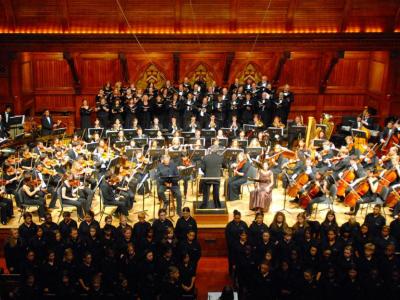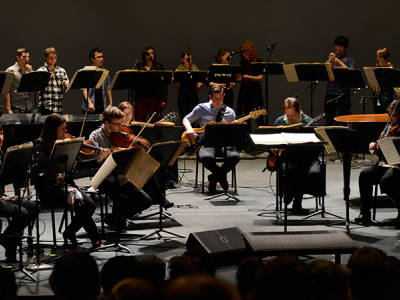What does a Military Musician do?
Military musicians are enlisted members of their country's armed forces who play in various ensembles and perform duties related to music stewardship. To take the United States Army as an example, each of the five branches—Army, Navy, Air Force Marines, and Coast Guard—has several large concert ensembles that resemble orchestras. These large ensembles might also be broken down into smaller groups spanning a wide stylistic range from Dixieland and Celtic to country, calypso, bluegrass, or Baroque. Although military musicians rarely see active combat, on some occasions they may be deployed to conflict zones—and all are required to complete basic combat training regardless.
For those who want to work exclusively as a musician and not as a soldier, it's critical that they audition, are accepted for a position, and complete the paperwork before enlisting.
Most military musicians participate in several groups and perform at a host of military functions, including ceremonies, parades, dinner receptions, concerts for troops, and holiday celebrations. In addition to traditional bands, the United States Army also employs a handful of premier bands—elite ensembles that perform at prestigious events such as presidential inaugurations, foreign dignitary visits, and funerals at Arlington Cemetery on top of regularly scheduled concerts and tours. While most military musicians are performers first and foremost, many are assigned additional responsibilities such as working in the music library, maintaining an inventory of instruments, providing sound engineering for shows, or composing new pieces.
At a Glance
Most military musicians are high-level players with experience in concert and/or marching settings. Before joining the army, many military musicians work as orchestra musicians, touring musicians, or general business musicians. Some also possess arranging, composing, or engineering skills.
For those who want to work exclusively as a musician and not as a soldier, it's critical that they audition, are accepted for a position, and complete the paperwork before enlisting. While some enlist and work for a brief period as military musicians before pursuing careers outside the military, working as a military musician can also constitute a career in and of itself. Military musicians cannot be fired or laid off without serious cause, and members of premier bands are guaranteed the position until retirement, at age 55.
According to its website, The United States Armed Forces is the world's oldest and largest employer of musicians, offering the roughly 6,500 members who play in its 130 ensembles a dependable income, solid benefits, and a mission that revolves around cultural ambassadorship and musical diplomacy. Auditions are competitive, and desirable positions can have more than 50 applicants for a single opening. The best candidates are versatile players who sight-read well, are comfortable playing in many styles, and can double on multiple instruments.
- Deep instrumental proficiency
- Knowledge of and proficiency in many musical styles
- Live performance
- Marching/parades
- Reading music
- Physical fitness
This is a military job, which means living a prescribed, disciplined life for the duration of one's enlistment: following the official dress code, showing deference to superiors, and staying in top-notch physical condition. In addition, most successful military musicians are patient, precise, and enjoy participating in ceremonies and traditions.
Military musicians follow a professional schedule that resembles that of an orchestra musician, with a few notable exceptions—those who live on a base, for example, or who are deployed in a war-torn region. A typical day might start with a workout followed by rehearsals with various ensembles, individual instrument practice, time to take care of other band duties, and performances.
The job is a serious commitment, as military musicians are contractually bound to stay for the period of their enlistment, typically four to five years. However, they are also frequently allowed or even encouraged to pursue other musical projects and teaching gigs in their off time.






